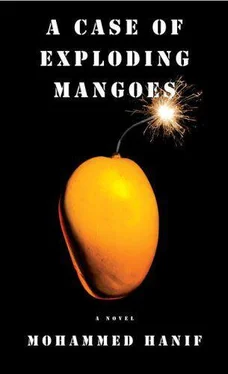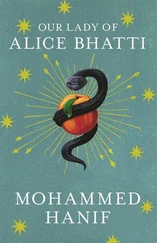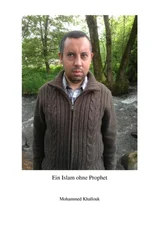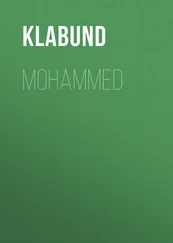It wasn’t until Pak One had taken off from Rawalpindi’s military airport for Bahawalpur that Major Kiyani put his feet on the table, lit a Dunhill and casually glanced at the passenger list that had been left on his table before Pak One’s take-off. His feet came off the table when he saw General Akhtar’s name just below General Zia’s. Like most veteran intelligence operators he believed that one should know only what one needs to know. Surely General Akhtar knew when to board Pak One and when to get off it; General Akhtar always knew the bigger picture. After eighteen names, starting with senior military ranks, he saw the first civilian name. Mr Arnold Raphel, the US Ambassador. He stood up from his seat. Why was the US Ambassador travelling on Pak One and not on his own Cessna?
Fear was Major Kiyani’s stock-in-trade. He knew how to ration it to others and he knew how to guard against it. But the kind of fear he felt now was different. He sat down again. He lit another cigarette and then realised one was already smouldering in the ashtray. Was there anything that he had not: understood about General Akhtar’s instructions?
It took him another eight minutes and three Dunhills to realise that his options were limited. There were no phone calls he could make without bringing his own name onto the records forever, there were no security alerts he could issue without implicating himself. The only thing he could do was to be there physically before Pak One took off for its return flight. He needed to get there and talk to General Zia before he stepped on that plane again. If General Akhtar was trying to play games with Pak One, it was a matter of internal security. But if General Akhtar was planning to bring down a plane with the US Ambassador on board then, surely, it was a threat to the nation’s very survival and it was his duty to stop it from happening. Major Kiyani felt he was the only man standing between a peaceful August day and the beginning of the Third World War. He looked at the passenger list again and wondered who else was on the plane. Everybody, he thought, or maybe nobody.
The time to make educated guesses was long gone.
A quick look at the commercial flights schedule ruled out the possibility of catching a plane to a nearby city. He thought about making a few calls and getting an air force plane but that would require authorisation from a general and there was no way they would let him land at Bahawalpur. He picked up the keys to his Corolla and was barging towards the door when he looked at his watch. He realised that he would have to wear his uniform. No civilian could do that long a drive without being stopped a dozen times along the way. Then there was the problem of negotiating General Zia’s security cordon. It couldn’t be done without the uniform. He took out a uniform from the stationery cupboard. It was pressed and starched but covered in a thick layer of dust. He couldn’t remember when he had last worn ic. His khaki trousers were too stiff and impossibly tight around his waist. He left the zip button on his trousers open and covered this arrangement with his khaki shirt. He took out the dust-covered oxford shoes from the cupboard but then realised that he was running out of time and nobody was going to see his feet in the car anyway. He decided to stick to his open-toed Peshawari slippers. He didn’t forget to pick up his holster. He had one last look at himself in the mirror and was pleased to notice that despite the awkward fit of the uniform, despite the fact that his hair covered his ears, despite his Peshawari slippers, nobody could mistake him for anyone other than an army major in a hurry.
General Zia was searching the sand dunes through his binoculars, waiting for the tank demonstration to start, when he saw the shadow of a bird moving across the shimmering expanse of sand. He raised his binoculars and searched for the bird, but the horizon was endlessly blank and blue except for the sun, a blazing silver disc lower than any celestial object should be. General Zia stood under a desert-camouflage tent flanked on one side by US Ambassador Arnold Raphel and on the other by the Vice Chief of the Army Staff, General Beg, with his new three-star general’s epaulettes and tinted sunglasses. General Akhtar was standing a little further away, his binoculars still hanging around his neck, fidgeting with the mahogany baton that he had started to carry since his promotion. Behind them stood a row of two-star generals, Armoured Corps Formation commanders and battery-powered pedestal fans that were causing a mini-sandstorm without providing any relief from the August humidity. At least the tent did protect them against the sun, which bear down on the exercise area marked with red flags, turning it into a glimmering, still sea of sand. Holding to their eyes the leather-encased binoculars provided by the tank manufacturers, the generals saw the khaki barrel of an Mi Abram appear from behind a sand dune. The tank, General Zia noted with interest, had already been painted in the dull green colours of the Pakistan Army. Is it a free sample, he wondered, or has one of my eager generals in Defence Procurement already written the cheque?
The Mi Abram lowered its barrel to salute the General and kept it there as a mark of respect for the recitation from the Quran. The Armoured Corps’ Religious Officer chose the General’s favourite verse for these occasions: “ Hold Fast the Rope of Allah and Keep Your Horses Ready ”.
Lowering his binoculars, General Zia listened to the recitation with his eyes shut and tried to calculate the percentage of kickbacks. As soon as the recitation was over he turned to confer with General Beg about the mode of payment for these tanks. He saw his own distorted face in General Beg’s sunglasses. General Zia couldn’t remember Beg ever wearing these glasses before he appointed him his deputy and practically gave him the operational command of the army. When General Zia had gone to congratulate him on his first day in his new office, General Beg received him sporting these sunglasses even though it was a cloudy day in Islamabad; further proof, if proof was needed, that power corrupts. General Zia hated General Beg’s sunglasses but still hadn’t found a way to broach the subject. It was probably a violation of the uniform code. What was worse, it made him look Western and vulgar, more like a Hollywood general than the Commander-in-Chief of the army of an Islamic republic. And General Zia couldn’t look into his eyes.
General Akhtar saw them whispering to each other intensely and his resolve strengthened. As soon as the demonstration was over he would make an excuse and dash back to Islamabad in his own Cessna. General Zia seemed to have forgotten that he had invited his Chairman of the Joint Chiefs of Staff Committee. He didn’t seem to remember that he wanted to consult ‘Brother Akhtar’ on the most important decision of his life. If this was a test, he had passed. Now he needed to be close to General Headquarters, close to the National Television Station, close to his black sherwani. He would need to address the nation in less than two hours. This unscheduled trip had added another layer of depth to his plan. Now nobody could say that he had deliberately stayed behind in Islamabad. They would say he was just lucky because he didn’t stay for lunch at the garrison mess. In order to distract himself from the proceedings, he silently started to rehearse his address to the nation.
Listening to General Beg’s long-winded reply about the payment for the tanks, General Zia made a mental note that after the tank trial he would settle this sunglasses business once and for all. General Beg was still going on about the direct link between the proposed tank deal and US military aid — all of it falling within the procurement objectives set in the US-Pakistan defence pact — when the first shot rang out.
Читать дальше












